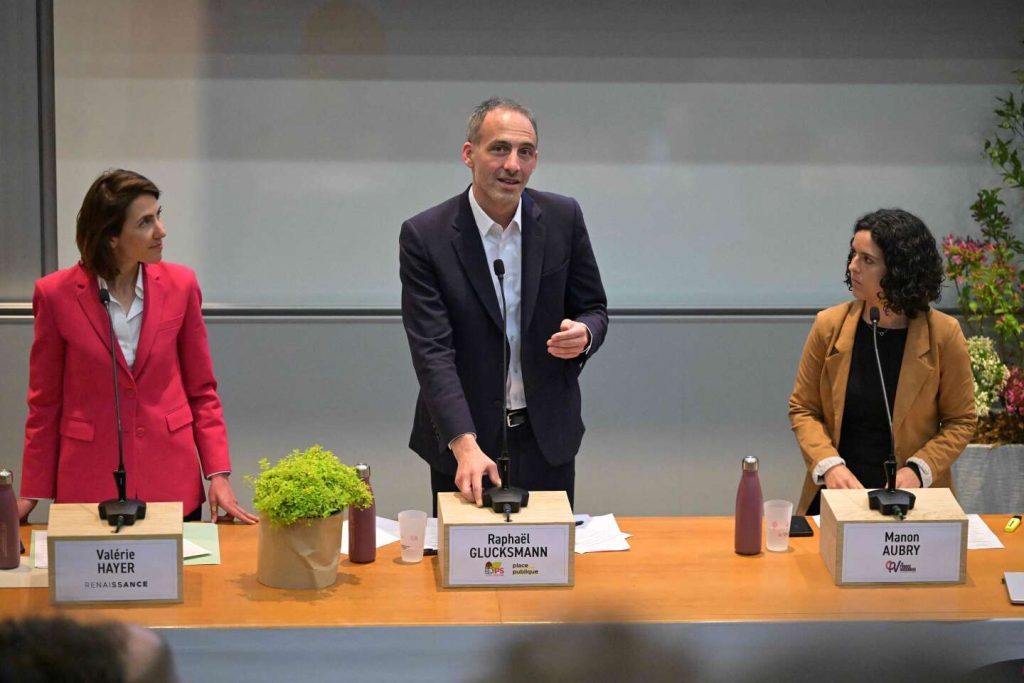Valérie Hayer, the head of the list for the presidential camp for the European elections in June 2024, Raphaël Glucksmann, the head of the list for the Socialist Party and Place publique, and Manon Aubry, the head of the list for La France insoumise, participated in a debate organized by the think tank Shift Project in Angers on April 16, 2024. The theme of climate change and ecological transition is not completely absent from the European elections campaign. However, unlike in 2019, it is either largely overshadowed by geopolitical and defense issues related to the war in Ukraine and Gaza, or instrumentalized by climate-skeptic far-right groups, such as during the agricultural crisis.
To confront the candidates with this major issue, the Shift Project, a think tank advocating for the decarbonization of the economy, brought together five heads of lists on April 16 in Angers: Valérie Hayer for the presidential camp, Marie Toussaint for Europe Ecologie-Les Verts, Manon Aubry for La France insoumise, François-Xavier Bellamy for Les Républicains, Raphaël Glucksmann for the Socialist Party and Place publique, as well as Jean-Philippe Tanguy, a member of the Rassemblement national party, representing Jordan Bardella, the party’s president and head of the list, who once again avoided the confrontation. The debate was eagerly anticipated by climate advocates and experts less than two months before the scheduled vote on June 9.
The dividing line of this election regarding climate change is between those who believe that the transition is necessary and should remain a priority, and those who see it as something incidental, with a fundamental issue underlying it: the implementation of the European Green Deal. This was summarized by Nicolas Berghmans, Europe expert at the Institute for Sustainable Development and International Relations. As a consequence of the previous 2019 election, which took place after large youth climate marches in many countries, the European Union launched its Green Deal in December 2019, aiming to reduce greenhouse gas emissions by 55% by 2030 compared to 1990, as well as setting goals for health and environmental protection.
During the debate on Tuesday night, the candidates expressed different views on norms and constraints, such as the proposed ban on the sale of new vehicles with internal combustion engines by 2035. This sparked criticism from Mr. Tanguy, who argued against placing blame on elderly individuals who drive older cars, while failing to address broader issues such as globalization. This highlights the strategy of many eurosceptics who denounce a “punitive ecology” allegedly imposed by Brussels and the elites in an attempt to gain popular support. However, the issue of climate change and the European Green Deal remains a central focus of the election campaign.
The debate on climate change and ecological transition in the context of the European elections underscores the importance of this issue in shaping the future of Europe. The competing visions and strategies presented by the candidates reflect a broader debate within European society about the urgency of addressing climate change and implementing sustainable policies. As the election date approaches, it is clear that the environment and sustainability will play a significant role in shaping the political landscape in Europe, and the outcomes of the elections will have a lasting impact on the continent’s approach to climate change and ecological transition.


